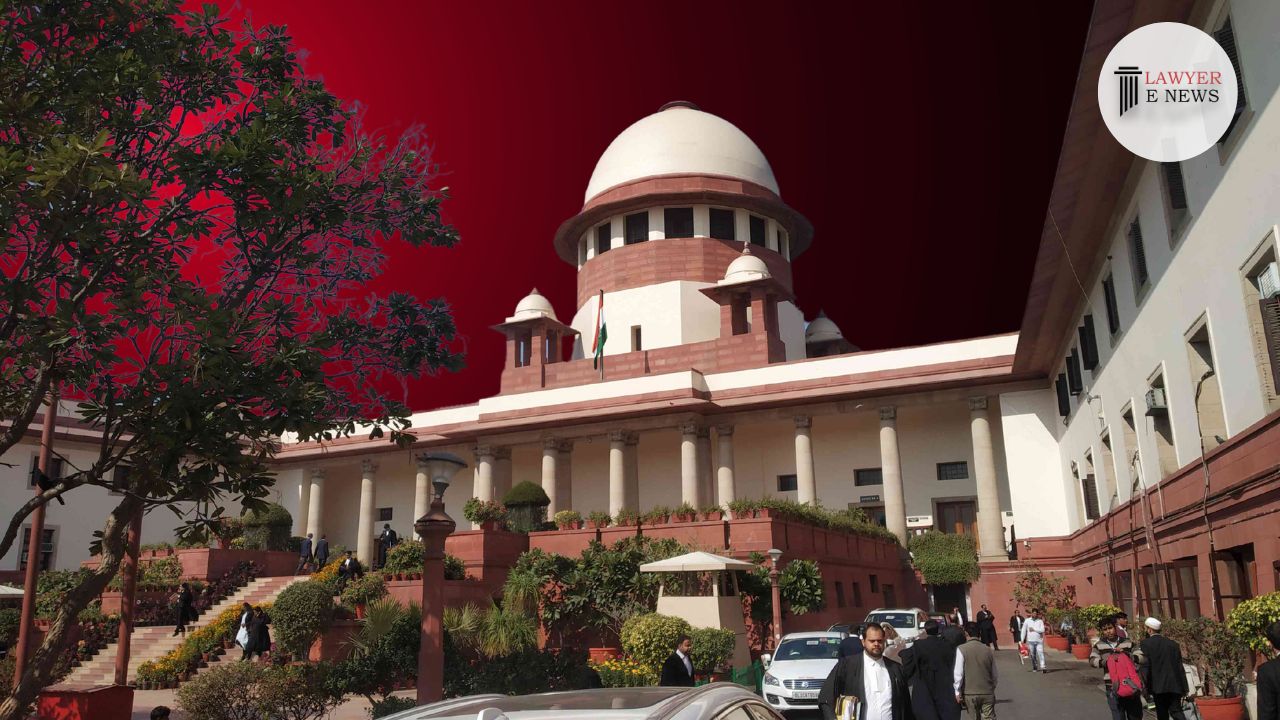-
by Admin
15 February 2026 2:36 AM



On 17 April 2023, the Supreme Court while set aside the Anticipatory Bail order of a IRS officer, in a reportable judgement (CBI Vs Santosh Karnani & Anr), stated that corruption poses a serious threat to society and must be dealt with firmly. The allegations against Respondent No. 1 were serious and could not be brushed aside lightly. The investigation against Respondent No. 1 did not require any previous approval of the Central Government, as the accusation did not revolve around any recommendations or decisions made by him in his administrative capacity.
The complainant/businessman engaged in the construction business who had disclosed an additional income of Rs. 50 crores during a survey conducted by an IRS Officer, Respondent No. 1, in February 2019. Subsequently, in September 2021, a search and seizure action was initiated against the complainant's business, and some papers related to the complainant's business were seized. It is alleged that Respondent No. 1 demanded illegal gratification of Rs. 30 lakhs from the complainant during their interactions, and a conversation between them was recorded by the complainant. On 4th October, 2022, FIR No. 12/2022 was registered against Respondent No. 1 under Sections 7, 13(1) and 13(2) of the Prevention of Corruption Act, 1988. On 12th October, 2022, the case was transferred to the CBI. Respondent No. 1 failed to respond to notices under Section 41A of the CrPC and sought more time to join the investigation on various grounds while simultaneously applying for anticipatory bail. By an order dated 3rd November, 2022, the Special Judge, CBI Court No. 3, rejected Respondent No. 1's application for anticipatory bail, and custodial interrogation of Respondent No. 1 was held necessary. However, the High Court of Gujarat granted anticipatory bail to Respondent No. 1 on 19th December, 2022, on the basis that there was doubt regarding the acceptance of illegal gratification, and directed that despite the grant of anticipatory bail, CBI could apply for police remand of Respondent No. 1, and if granted, Respondent No. 1 would be set free immediately upon completion of the police remand. Following the High Court's directions, Respondent No. 1 joined the investigation but did not produce his mobile phone(s) despite being asked to do so repeatedly. On 30th December, 2022, the Special Judge, CBI Court No. 3 partly allowed CBI's application for police remand of Respondent No. 1, directing him to surrender himself to the custody of the Investigating Officer from 31st December, 2022 to 3rd January, 2023, and that he be set free at 7.00 pm on respective dates.
Supreme court emphasized that no straitjacket formula can be applied for grant or refusal of anticipatory bail, and the decision will depend on various relevant factors and the facts and circumstances of each case. The Court must balance the liberty of the individual guaranteed under Article 21 of the Constitution and the need for a fair and free investigation, which must be taken to its logical conclusion. The Court should not jeopardize the investigation when the allegations are grave in nature, even if it means denying anticipatory bail.
The Court found that the High Court had made factual errors in granting anticipatory bail to Respondent No. 1 and that there was a prima facie case against him based on the evidence presented by the CBI, including a recorded conversation between the complainant and Respondent No. 1. The Court also found that the alleged delay in registering the FIR was not a ground for granting anticipatory bail and that the destruction of evidence by Respondent No. 1 was a strong circumstance indicating his complicity.
Supreme Court noted that corruption poses a serious threat to society and must be dealt with firmly. The Court found that the allegations against the Respondent No. 1 were serious and could not be brushed aside lightly. The Court also held that the investigation against Respondent No. 1 did not require any previous approval of the Central Government, as the accusation did not revolve around any recommendations or decisions made by him in his administrative capacity.
The Court further observed that while cancellation of bail must be done only for cogent and overwhelming reasons, setting aside an unjustified order granting bail is distinct from cancellation of bail. The High Court must exercise its discretion judiciously and strictly in conformity with the basic principles laid down by the Supreme Court. The Court allowed the appeals, set aside the High Court's order granting anticipatory bail to Respondent No. 1, and dismissed his application for anticipatory bail. The Court also set aside the order passed by the Special Judge, CBI Court No. 3 partly allowing CBI’s application for remand.
Central Bureau of Investigation VS Santosh Karnani & Anr.
